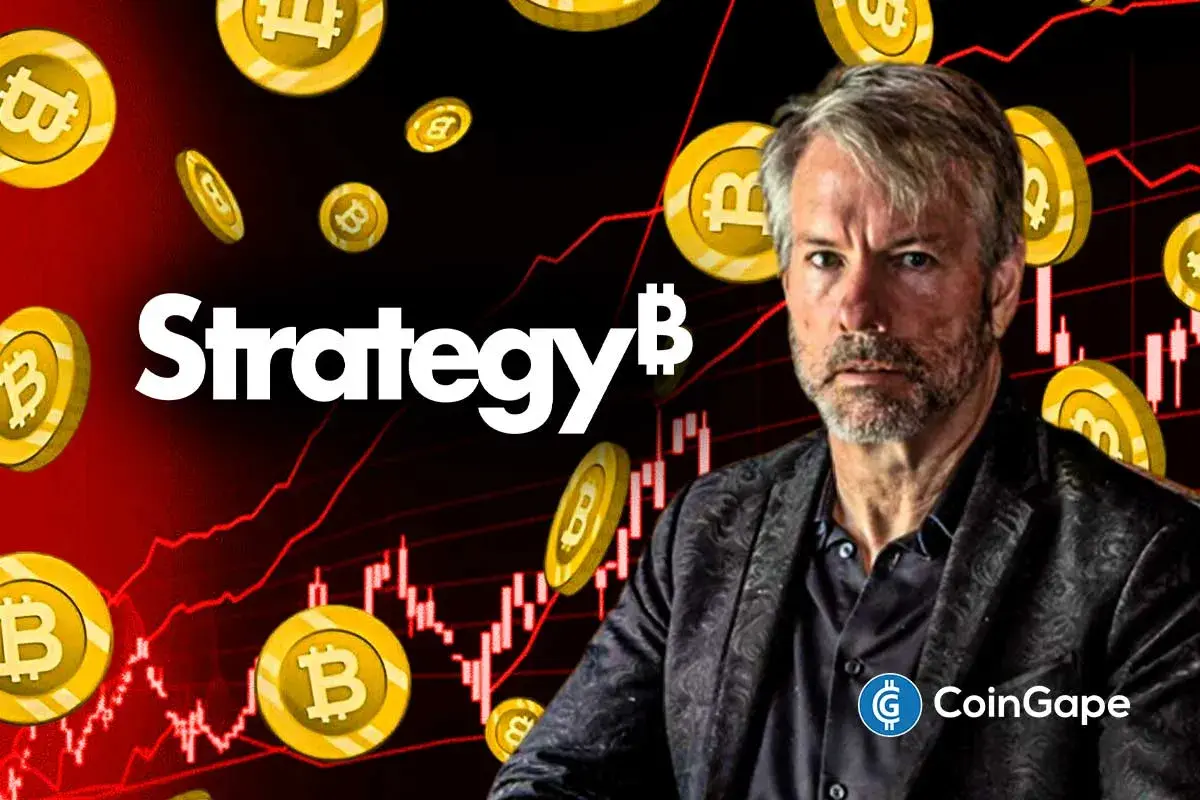Michael Saylor Calls “Proof Of Reserves” A Bad Idea, But That’s Not What He Meant [Full Video]

Highlights
- Michael Saylor finds exposing proof-of-reserves as a bad idea.
- Saylor cites security concerns, sparking controversy.
- While some support his view, others question Saylor's approach to transparency.
As per a latest viral video, Strategy founder Michael Saylor was found calling proof of reserves a bad idea. Crypto community is not very happy about Saylor’s comments as POR is seen as a way to make crypto entities accountable and transparent. Strategy now holds 580,250 BTC after their recent purchase on 26th May, 2025. But, upon watching the full video one can argue he was actually mentioning the pitfalls in the existing reporting of Proof of reserves.
Saylor Thinks Publishing “Only” Proof of Reserves Is Not Good
Earlier today, Bitcoin proponent and analyst Mitchell shared a thread on his official X page, revealing Michael Saylor’s approach to proof-of-reserves. During a May 26 event related to the Bitcoin 2025 conference in Las Vegas, Michael Saylor stated, referring to proof-of-reserves, “It’s a bad idea.”
Significantly, Michael Saylor’s skepticism on the idea is primarily driven by its potential limitations and risks. According to the MicroStrategy founder, by publishing the proof-of-reserves, the companies are exposing themselves to security threats and other vulnerabilities. He posited,
The current, conventional way to publish proof of reserves is an insecure proof of reserves. It actually dilutes the security of the issuer, the custodians, the exchanges and the investors. It’s not a good idea, it’s a bad idea.”
Reflecting on the massive debacles of FTX and Mt.Gox, Saylor asserted that the crypto industry can draw valuable lessons from these collapses. However, he believes that publishing the PoR is not the ideal way. He argues that publishing wallet addresses would make it easy to track transactions back and forth, increasing vulnerabilities for issuers, custodians, exchanges, and investors.
To further corroborate his points, the MicroStrategy founder suggests using AI to analyze the security problems of publishing wallet addresses. He claims the AI would generate around 50 pages of security concerns, highlighting potential long-term risks to a company’s security. He noted, “Go to AI, put it in deep think mode and then ask it ‘what are the security problems of publishing your wallet addresses?’ and ‘how might it undermine the security of your company over time.”
He mentioned publishes only proof of assets without disclosing the liabilities does not help any big investor to make billion dollar investments.
He further shared, that the best process would be to get an audit from a big 4 and publish it with required executive signatory of the company. According to him in future may be using a zk proof technology to keep the personal details secure will be a much better way to do this. This development comes following MicroStrategy’s Bitcoin buying spree, bringing its total holdings to 580,250 BTC.
Is Michael Saylor Right?
Notably, Michael Saylor’s critical comments on proof-of-reserves have sparked widespread attention, with some backing his views and others raising concerns about the potential consequences for the industry’s accountability standards. Despite the growing adoption of proof-of-reserves among crypto exchanges following the FTX collapse, cryptocurrency-related crimes are on the rise. Recently, Hong Kong police have cracked a $15 million cryptocurrency laundering ring, arresting 12 individuals involved in the operation.
His remarks come at a time when crypto kidnapping and crime is at an all time high. As reported by coingape, recently the daughter of Paymium founder was kidnapped in broad day light in France.
As per Grok, PoR shows assets, it doesn’t account for liabilities, raising concerns about solvency. Security risks are valid, but modern PoR methods, like Merkle trees and audits, mitigate exposure. Despite concerns, there’s no evidence linking PoR to breaches. Transparency builds trust, with exchanges like Kraken adopting PoR. The industry seems to lean toward PoR, but the security vs openness trade-off keeps the debate alive.
In response to Michael Saylor’s comments, the crypto community has shared its views. For instance, many questioned Saylor’s approach to transparency in the crypto space. While many endorse Saylor for his Bitcoin investments, his comments on proof-of-reserves have raised eyebrows. Some twitter users even called this a red flag considering this as an attempt to avoid transparency.
- Ripple’s RLUSD Gets Institutional Boost as SEC Eases Stablecoin Rules for Broker-Dealers
- Crypto Market Weekly Recap: BTC Waver on Macro & Quantum Jitters, CLARITY Act Deadline Fuels Hope, Sui ETFs Go Live Feb 16-20
- Robert Kiyosaki Reveals Why He Bought Bitcoin at $67K?
- XRP News: Ripple Partner SBI Reveals On-Chain Bonds That Pay Investors in XRP
- BitMine Ethereum Purchase: Tom Lee Doubles Down on ETH With $34.7M Fresh Buy
- Ethereum Price Rises After SCOTUS Ruling: Here’s Why a Drop to $1,500 is Possible
- Will Pi Network Price See a Surge After the Mainnet Launch Anniversary?
- Bitcoin and XRP Price Prediction As White House Sets March 1st Deadline to Advance Clarity Act
- Top 3 Price Predictions Feb 2026 for Solana, Bitcoin, Pi Network as Odds of Trump Attacking Iran Rise
- Cardano Price Prediction Feb 2026 as Coinbase Accepts ADA as Loan Collateral
- Ripple Prediction: Will Arizona XRP Reserve Boost Price?


















